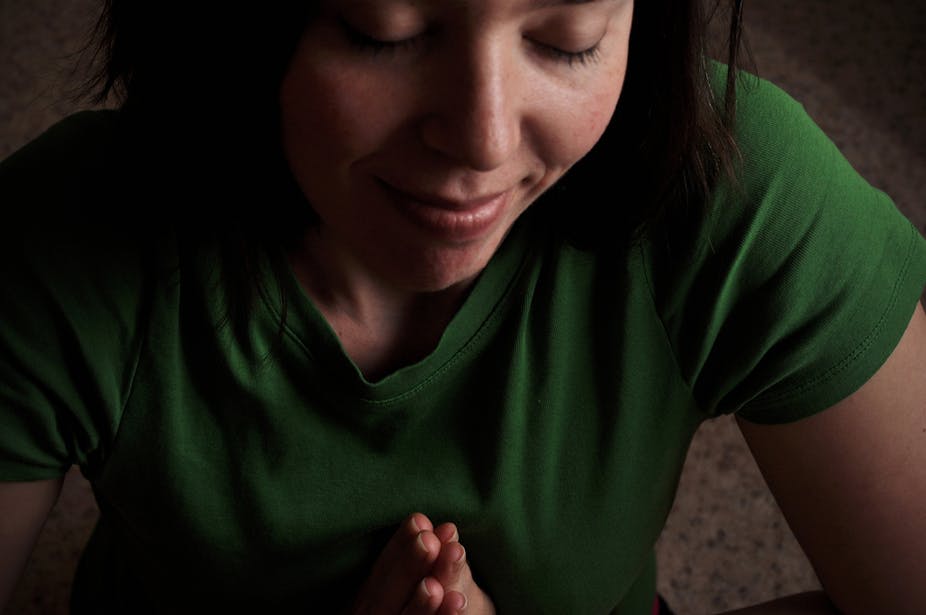As immigrants from around the world have joined Australia’s cultural mix, an inevitable rise in religious diversity has followed. But has this made for a healthier society? A recent VicHealth study showed that while religion can protect against illness, religious discrimination can harm health. This has led to a renewed call to embrace and respect religious diversity.
Most Australians still adhere to Christian beliefs, but people who follow the Buddhist, Islamic and Hindu faiths are increasingly making Australia their home, expanding the religious landscape.
The Australian government has signed various international human rights agreements protecting religious freedoms, including the 1948 Universal Declaration of Human Rights. And religious discrimination is unlawful in Australia under the Human Rights and Equal Opportunity Commission Act of 1986.
Despite these legal protections, members of some religious groups living in Australia are unable to express their right to religious freedom in their daily lives. Muslim Australians, in particular, have faced higher levels of religious discrimination in recent years. Discrimination against Jewish Australians also occurs with worrying frequency.

A study exploring the link between religion, religious discrimination and health was undertaken as part of VicHealth’s broader program of research into preventing race-based discrimination. It involved comprehensively reviewing the scientific literature – both from Australia and internationally – on the links between religion and health, as well as religious discrimination and health.
The findings suggest that religious beliefs and practices can protect the health of people of faith, with the link being most evident between religion and mental health. Religious beliefs and practices may protect against depression and reduce the risk of anxiety and of suicide. Religious people are also less likely to risk their health with alcohol, drugs and tobacco.
The link between religion and physical health isn’t as clear, but there’s evidence that people who regularly participate in religious activities may live longer.
It’s important to be clear that the good health associated with religion only occurs when people are able to exercise control and choice over their beliefs and practices. When people practice religion as a result of external pressures, and not internal beliefs, their health may actually be negatively affected.

The reasons behind the religion and health link are not well understood, but there’s some evidence that religious practices (like praying) can help to reduce stress. Also, when people are part of an organised religion, they generally have a strong social network, which benefits both physical and mental health.
Religion can also be associated with positive emotions, including a sense of optimism and purpose to life, and can provide a healthy way of coping with stress. Attendance at places of worship seems to be particularly important for physical health, as it may keep people active and reduce the risk of physical disability.
At the opposite end of the spectrum, it’s quite clear that religious discrimination has the potential to make people unwell. Such prejudice appears to be associated with anxiety, depression, distress, sub-clinical paranoia and decreased life satisfaction. Experiences of religious discrimination may also prompt people to take risks with their health – manifest as smoking and alcohol or drug abuse.

There are a number of reasons why discrimination is bad for health. It can produce negative emotions such as stress and fear, and it can cause people to adopt risky coping strategies and can affect individuals’ self-esteem and sense of belonging.
Crucially, discrimination can restrict people’s access to resources such as housing, employment and education – all of which are vitally important for health and wellbeing. At its worst, discrimination takes the form of physical attacks or violence, which clearly impact on the physical and mental health of those who are targeted.
The findings of this study don’t suggest that religion should be adopted as a tool for promoting health (as has been the case with exercise and a nutritious diet). Rather, they highlight the importance of ensuring all Australians have the opportunity to practice their faith, without discrimination, and that people aren’t excluded from society because of their religious beliefs. The findings also suggest that religious beliefs and practices may need to be better accommodated in schools and workplaces.
Perhaps most crucially, the findings highlight the importance of improving inter-faith understanding and dialogue in Australia – not only from a human rights perspective, but as part of a broader health promotion agenda.

